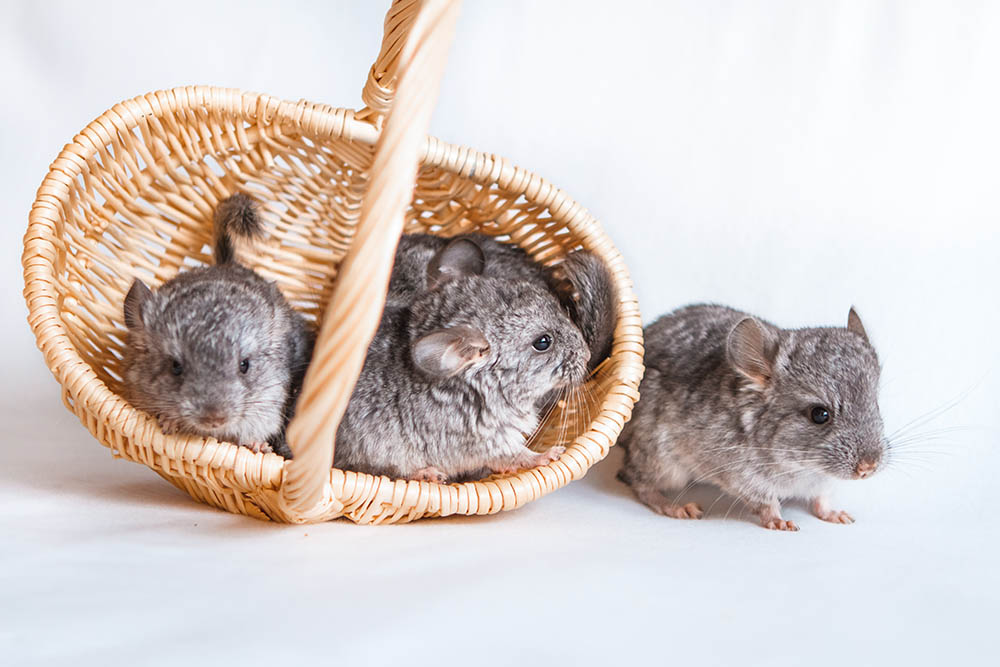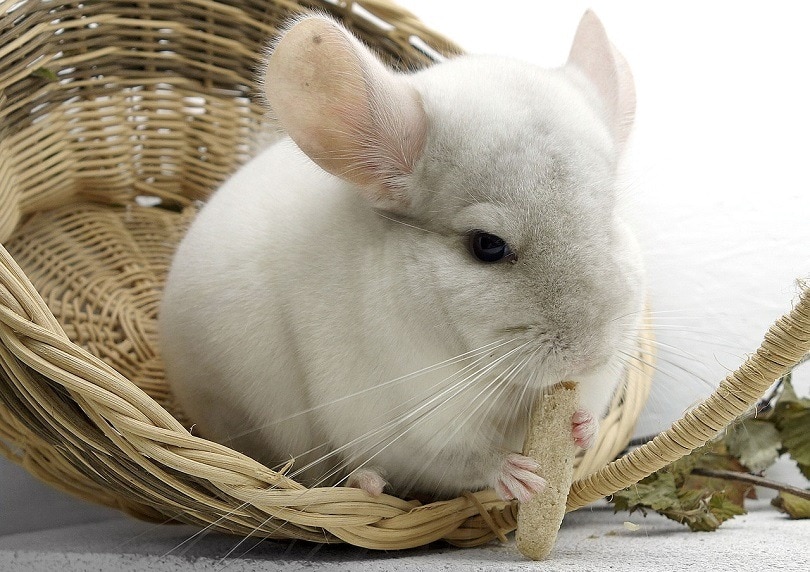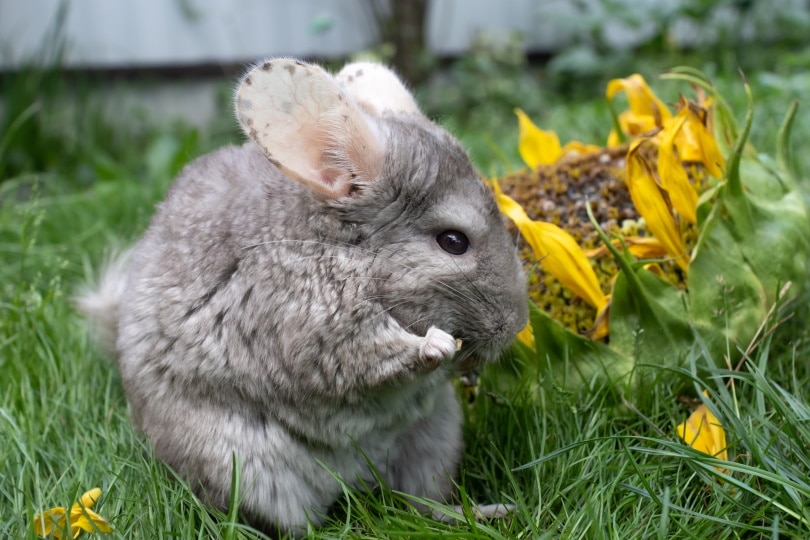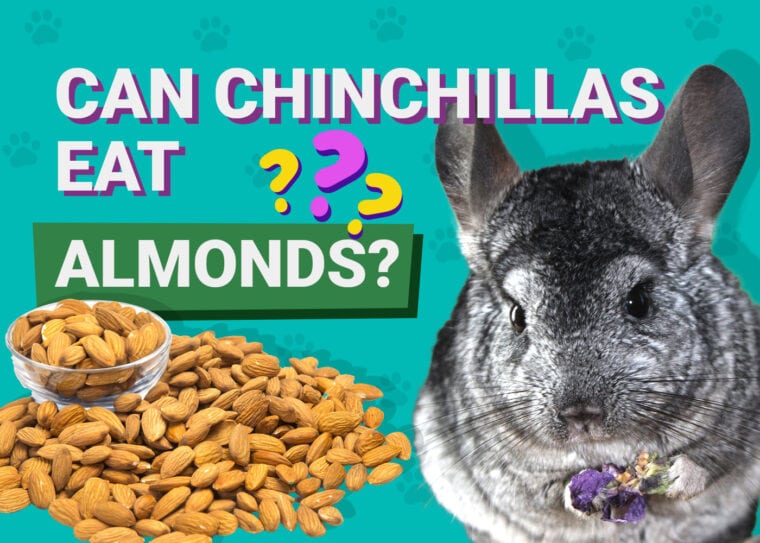
Chinchillas are cute and furry animals that tend to be picky when eating food. These finicky animals typically love eating commercial pellets designed just for them. They also tend to enjoy eating hay, bark, and grass. However, even though they can and should be offered various healthy snacks for optimal nutrition intake and healthy life, these animals may stick their nose up at any of the snacks provided to them.
But just because your chinchilla will not eat a certain food does not mean they shouldn’t. So, can chinchillas safely be offered foods like almonds? The answer is a little tricky. While chinchillas can eat almonds, they should only do so sparingly, and many other snack options are healthier and more appropriate for this animal. Here is everything you need to know about feeding almonds to your chinchilla.
Chinchillas Can Technically Eat Almonds, But Should They?
Chinchillas can technically eat almonds, but that does not mean almonds should be made a regular part of their diet. Almonds are high in calories and fat, both of which can contribute to obesity and future health problems. Feeding almonds to a chinchilla leaves less room in their diet for healthier and less calorie-dense snack options.
Also, almonds contain hydrocyan. If chinchillas consume this substance regularly, it could lead to the development of hepatic pathologies, which are ailments of the liver. These pathologies could lead to serious illness or even death. There is no need to worry if your chinchilla eats an almond; you can even offer half an almond as a snack occasionally. However, it is important to ensure that almonds are not included in your chinchilla’s commercial food and are not included in the animal’s regular snack offerings.

Other Foods That Chinchillas Should Not Eat
All nuts and seeds should be avoided as snacks for your chinchilla. Fresh fruits should not be offered to chinchillas either because they contain high amounts of phosphorous, which can lead to ulcers. Fresh fruits also contain high amounts of minerals, which can cause a nutrition imbalance as time goes on.
Most vegetables should also be avoided for the most part because they can result in bloat and digestive discomfort. Commercial pellet food not designed specifically for chinchillas and seed mixes should always be avoided because they are not formulated to meet the nutritional needs of this specific species.
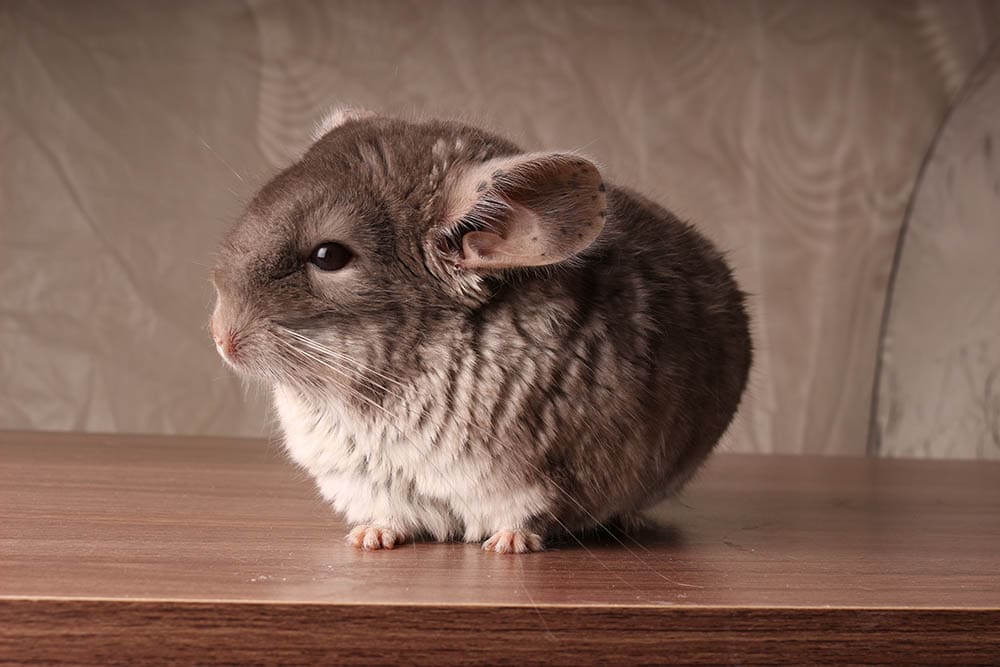
Healthier Snack Options for Chinchilla Owners to Consider
No “human” food should make up most of your pet chinchilla’s diet at any time. About 95% of your pet’s diet should be composed of commercial pellets and hay that can be sourced from the livestock supply shop. However, 5% of their diet can be made up of healthy snacks found in your kitchen or easily sourced from grocery or health food stores.
It is important to keep in mind that your chinchilla needs only a few of these foods to gain their nutritional benefits. Too many of these foods can be disastrous to your chinchilla’s health overall. Therefore, your chinchilla should not get more than one teaspoon’s worth of snacks each day. That isn’t much for humans, but plenty for a small chinchilla. Choose a different food for snack time each day to ensure that your pet’s nutrition is varied.
Final Thoughts
Sometimes referred to as pocket pets, chinchillas do not need much food to thrive. This is why it is important to ensure that every bite your pet chinchilla takes counts. There is no room for “junk food” like there might be for humans. If possible, keep track of the snacks you offer your chinchilla daily, so you know what has and hasn’t been offered recently.
This should make it easy to figure out which foods to lay off to avoid overfeeding. It will also enable you to identify which foods have not been offered to your chinchilla recently so they can be safely put into the snack rotation again.
Featured Image Credit: Pixabay


